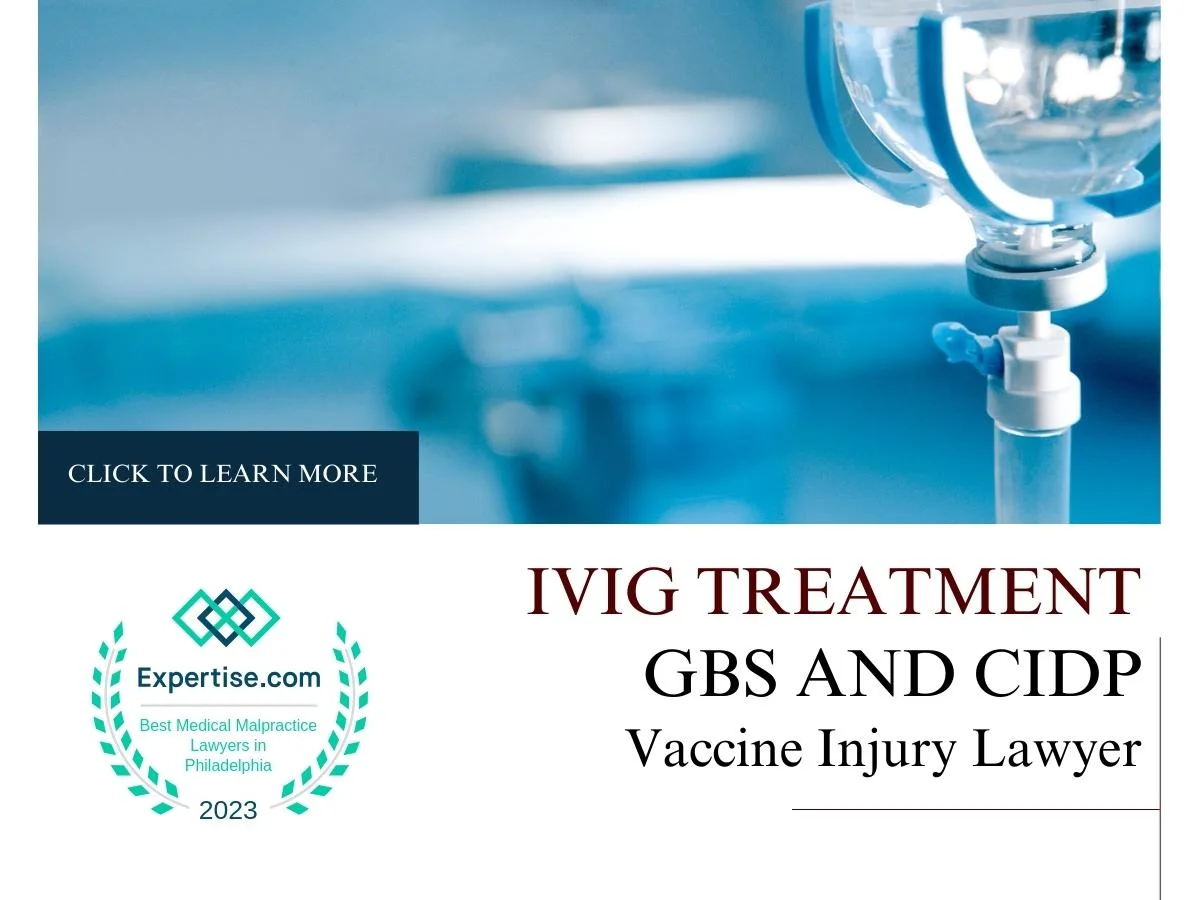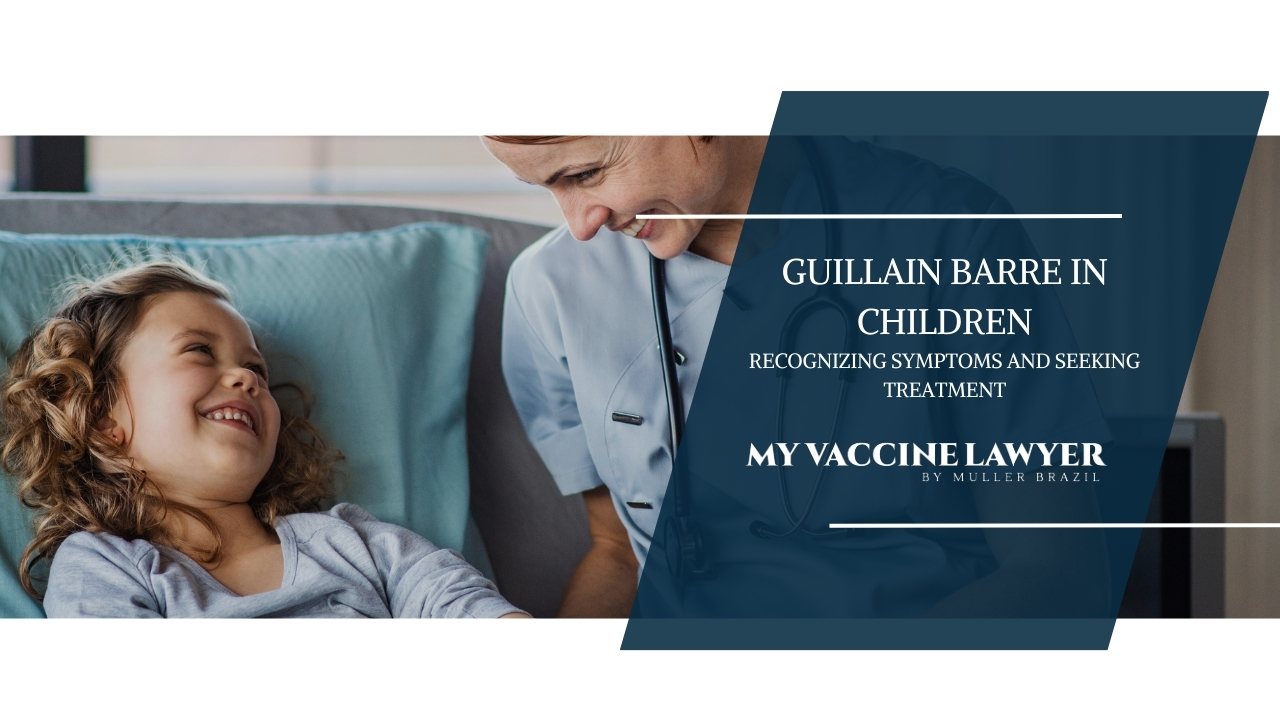Guillain-Barre Syndrome: Top Diet Strategies for Recovery
What dietary choices help recovery from Guillain-Barre Syndrome? This question is important for patients and caregivers alike.
7 min read
Vaccine Injury Law Resources / Treatment / Guillain-Barré Syndrome in Children: Symptoms & Treatment
 Paul Brazil
:
Feb 15, 2024 12:00:00 PM
Paul Brazil
:
Feb 15, 2024 12:00:00 PM
If your child suddenly feels weak or has trouble moving, they might have Guillain-Barre Syndrome (GBS), a serious nerve condition. Catching this early and starting treatment quickly is very important for your child's recovery.
Treatments like immune therapies and extra care help manage the symptoms and improve recovery chances. Pediatric neurologists play a crucial role by doing detailed tests to diagnose GBS correctly and begin the right treatments promptly. Understanding these steps can help you feel more prepared as you work with doctors to ensure your child receives the best possible care.
In the following sections, we discuss the important information you need on symptoms, diagnosis, and treatments to deal with this challenging situation with confidence.
Guillain-Barré Syndrome (GBS) is a transient yet potentially life-threatening condition characterized by nerve-related manifestations such as muscle weakness, pain, and sensory loss. This condition primarily affects the peripheral nervous system, which connects the child’s brain and spinal cord to the rest of the body.
It can lead to temporary paralysis and breathing problems. Among the subtypes of Guillain-Barré Syndrome, acute motor axonal neuropathy is one of the forms that specifically targets motor nerves.
Facing a diagnosis of this syndrome in children can be daunting. Still, a thorough understanding of symptoms, causes, and risk factors equips you to manage the healthcare system more effectively for your child’s wellbeing.
.jpg?width=2240&height=1260&name=MVL%20template%20(10).jpg)
The symptoms of GBS in children include muscle weakness, sensory loss, and challenges with breathing or swallowing. These symptoms are caused by damage to the peripheral nerves and require immediate medical intervention.
The progression of symptoms may involve:
These children’s symptoms are distinct from common childhood illnesses, making early diagnosis crucial for proper treatment and care.
GBS is an autoimmune disorder that can be triggered by various factors, including:
It can affect any child regardless of age or gender. Viral infections such as the flu, cytomegalovirus, Epstein-Barr virus, and Zika virus, among others, can lead to the immune system’s attack on the peripheral nerves. The consequences are symptoms of GBS.
In some cases, antecedent surgery or injuries may also trigger the onset of GBS in children. These triggers can produce cross-reactive immune responses, resulting in damage to the myelin sheath and nerve conduction failure, ultimately leading to the onset of the syndrome.
Detecting Guillain-Barré Syndrome early is pivotal for managing the condition effectively. Incidences of GBS affecting chest muscles can lead to breathing difficulties, requiring respiratory support. Swift diagnosis and treatment help avoid severe complications.
Diagnosing GBS in children involves a full process that includes:
Informing the healthcare provider about symptoms such as irritability, respiratory issues, or swallowing difficulties is vital, as they could indicate GBS.
The diagnosis of Guillain-Barré Syndrome involves specific tests, including:
Blood tests like complete blood counts (CBCs) and metabolic panels help in the diagnosis of the syndrome.
A spinal tap or lumbar puncture procedure helps in the diagnosis by withdrawing fluid from the spinal canal for testing. Other diagnostic tests for GBS include:
These tests help healthcare professionals diagnose GBS and determine the appropriate treatment plan.
Pediatric neurologists play a vital role in diagnosing and managing Guillain-Barré Syndrome in children. They:
They offer specific medical attention in diagnosing and treating Guillain-Barré Syndrome, administering immunomodulating treatments such as intravenous immune globulin (IVIG), and working closely with other healthcare professionals to devise a comprehensive treatment strategy.
When diagnosing a child with Guillain-Barré Syndrome, the primary treatment focus is:
Consequently, the treatment strategy for children with Guillain-Barré Syndrome centers on symptom management, complication prevention, and recovery support.
The treatment involves a combination of immune system therapies and supportive care, which are personalized to suit each child's individual needs. The goal is to reduce the severity and duration of the symptoms caused by the immune system’s attack and help the child regain muscle strength and return to normal activities.
Therapies targeting the immune system, such as intravenous immunoglobulin and plasma exchange, are important in minimizing the intensity and duration of GBS symptoms in children. Intravenous immunoglobulin (IVIG) therapy, administered intravenously, contains antibodies that help neutralize the disease and can result in relatively swift improvements in symptoms.
Plasma exchange is another effective treatment strategy. This procedure involves eliminating the plasma from a child’s blood. The plasma contains the antibodies or factors responsible for nerve damage, and its removal aids in the management of the condition.
While these therapies may potentially cause side effects such as headaches, aseptic meningitis, and temporary blood pressure changes, they generally have a significant impact on the course of the disease.
In addition to immune therapies, supportive care forms a critical part of the treatment plan for children with Guillain-Barré Syndrome. Supportive care includes managing ventilatory status, sedation, and autonomic functions and administering necessary immunotherapies. To control pain in children with Guillain-Barré Syndrome, opioid analogues are used to treat pain and sensory symptoms, along with the administration of oral prednisolone therapy, which has proven effective in providing pain relief.
Furthermore, respiratory support becomes crucial in managing GBS in children due to the potential weakness of respiratory muscles. In severe cases, ventilatory support becomes necessary to guarantee adequate breathing throughout the course of the illness, as irritability breathing problems trouble may arise.
Additionally, physical therapy is key in a child’s rehabilitation. It involves developing customized exercises to increase the strength of weakened muscles, thereby improving the child’s mobility. A physical exam may be conducted to assess the child’s condition before starting the therapy.
While most children diagnosed with Guillain-Barré Syndrome recover fully, complications may arise. Children suffering from Guillain-Barré Syndrome may encounter respiratory difficulties that can persist for several weeks to months, possibly resulting in continued functional limitations.
Furthermore, the muscle weakness induced by Guillain-Barré Syndrome in children may persist for a duration of 1-2 years, and in exceptional instances, may lead to persistent disability. However, despite these potential complications and long-term effects, it is heartening to note that most children with Guillain-Barré Syndrome achieve full recovery and continue their education without major disruptions.
Dealing with the healthcare system for a child with Guillain-Barré Syndrome can be challenging. As parents, you need to prepare for medical appointments, understand the different treatment options, and coordinate care with various healthcare providers.
This journey may involve overcoming difficulties such as:
However, with the right knowledge and resources, you can effectively manage your child’s healthcare and make sure they receive the best possible care.
In preparing for a medical appointment for a child with Guillain-Barré Syndrome, it is important to:
During the appointment, it’s important to:
Efficient healthcare coordination for a child diagnosed with Guillain-Barré Syndrome is achieved by:
Working closely with pediatric neurologists, therapists, and other healthcare professionals is essential to guarantee comprehensive and personalized care. This collaboration helps when coordinating treatments such as intravenous immunoglobulin, pain management, and various therapies aimed at maintaining muscle strength and rehabilitation. This collaborative approach guarantees that the child receives the best possible care and treatment.
Take Control of Your Injury Today
Guillain-Barré Syndrome in children, though rare and potentially life-threatening, can be effectively managed with early diagnosis, appropriate treatment, and comprehensive care. While the journey can be challenging, parents can manage the healthcare system effectively by understanding the syndrome, preparing for medical appointments, coordinating care, and making sure their child receives the necessary support and rehabilitation. It’s important to remember that most children with Guillain-Barré Syndrome recover fully and lead normal lives.
Guillain-Barré syndrome in children can occur after a viral infection, surgery, or injury, and rarely as a reaction to a vaccine. It is believed to be an autoimmune disorder where the body's immune system attacks the nervous system.
The onset of Guillain-Barré syndrome can be sudden and requires immediate hospitalization. It can develop over a few days to several weeks, with the greatest weakness occurring within the first couple of weeks after symptoms appear.
Most people with Guillain-Barré syndrome eventually make a full recovery, although it may take some time. While severe cases are rare, it is a potentially life-threatening condition.
If your child experiences muscle weakness, sensory loss, or difficulty breathing or swallowing, seek immediate medical help, as these could be symptoms of Guillain-Barré Syndrome.
Children with Guillain-Barré Syndrome can be treated with immune system therapies like intravenous immunoglobulin and plasma exchange, as well as supportive care and physical therapy to aid recovery. These treatments aim to manage symptoms and promote recovery.
Paul Brazil is a native of Dunmore, Pennsylvania and a graduate of Dunmore High School. For his undergraduate education, he attended Bloomsburg University where he majored in political science. He then went on to earn his JD from Widener University School of Law. Following graduation from law school, Mr. Brazil worked at a large Philadelphia civil defense firm where he litigated workers’ compensation claims and Heart and Lung Act cases. In 2012, he joined with his coworker Max Muller to form Muller Brazil.

What dietary choices help recovery from Guillain-Barre Syndrome? This question is important for patients and caregivers alike.

Having the intravenous immunoglobulin (IVIG) therapy helps people with Guillain-Barre Syndrome ("GBS") and Chronic Inflammatory Demyelinating...

Max Muller, a vaccine injury lawyer, successfully argued in court that the pneumonia vaccine caused Guillain-Barre Syndrome (GBS) in a patient. This...
